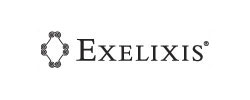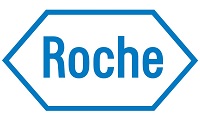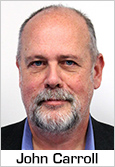 Let's start with the good news.
Let's start with the good news.
In 2015, the FDA by its own account approved 45 new drugs, the largest one-year tally since 1996, which wrapped up with a record 53 regulatory OKs.
The new generational high, easily lapping last year's list of 41 approvals, marks a new peak following a surge by the R&D side of the business, which continues to recover from a lengthy period of marked weakness. The FDA has helped, proving more than willing to come through with faster approvals, particularly in oncology. And the science around drug development has improved markedly as our understanding of the genetic drivers of disease continues to make real progress.
But here's the catch: Higher approval numbers don't necessarily translate into market-moving opportunities. Throw another me-too drug into a pack of rivals and even the best sales force can't do much with it, particularly if cheap generics dominate a disease. And in the patent cliff environment that has persisted for several years now, it takes blockbuster gains to make a big difference for the Big Pharma companies that dominate the industry.
So who came out of 2015 a big winner?
Novartis ($NVS) walked away with that crown. Not only did Novartis score a chart-topping four new approvals, but two of its new drugs--Entresto (LCZ696, peak sales estimate $5 billion-plus) and Cosentyx (a potential franchise dominator in psoriasis)--could have the kind of market impact needed to move the revenue dial in its favor.
Novartis has a big pipeline and can be incredibly focused for a Big Pharma, so it's no huge surprise to see them dominate on that score. What was remarkable was the presence of Pfizer ($PFE), Sanofi ($SNY), AstraZeneca ($AZN) and Amgen ($AMGN) among the list of top winners for the year.
Sanofi finally made the list of winners at the FDA thanks to a prescient decision to invest heavily in Regeneron ($REGN)--a key Big Biotech with one of the top reputations in drug R&D--while the pharma's in-house pipeline shows little sign of life. That strategic partnership gave Sanofi an approval for Praluent (alirocumab), which is now battling Repatha for market share in the new, multibillion-dollar PCSK9 arena. The approvals leave Amgen in the winner's circle as well, with two approvals for the year, though few have high hopes for its second win, for Corlanor, in the heart market.
 |
| AstraZeneca CEO Pascal Soriot |
AstraZeneca, long absent from the winner's circle, scored two green lights. The significant one was Tagrisso (AZD9291), which beat its troubled rival at Clovis to the market and gave CEO Pascal Soriot something to really cheer about as he continues to make the case that the pharma giant has truly turned the corner.
That jury is still out, particularly as its PD-L1 program has been falling further and further behind the leaders on the checkpoint pack. But a win is a win, and this one was big.
Then there was Pfizer, practically notorious for executing megamergers that never paid off. Pfizer not only gained an approval for the cancer drug Ibrance (palbociclib), it also won the accelerated approval on Phase II data. And Pfizer's been clear that even as it pursues its latest Moby Dick in the Allergan (three new drug approvals, though none of major proportions) acquisition, it expects to follow up with more fast-paced programs in cancer.
We'll see how that works out.
Rounding out the big winners are J&J ($JNJ), with Darzalex (the multiple myeloma "breakthrough" daratumumab, also under an accelerated approval), and Novo Nordisk's long-delayed diabetes drug Tresiba, both of which have major league potential.
So who came out a loser?
 |
| FDA's Richard Pazdur |
Once again, Eli Lilly ($LLY) found itself at the end of the line, which wasn't unexpected. Its approval for Portrazza, another marginal cancer drug priced high, didn't impress many analysts. Lilly primarily found itself defending the wholesale cost of the drug against physicians who are growing weary of prescribing therapies with little ability to significantly help patients. What passes muster at the FDA's cancer group, dominated by Richard Pazdur, does not always incite enthusiasm in medicine.
Lilly, by the way, has promised to provide multiple product launches every year for the foreseeable future and leaned on a biosimilar OK to keep its promise in 2015. (Lilly execs never did say the new approvals would be big.) Meanwhile, a failure for the CETP drug evacetrapib continued to raise doubts about Lilly's ability to deliver a market-moving drug. The stakes on solanezumab, now going through its second Phase III Alzheimer's program, keep rising higher and higher.
Merck ($MRK) didn't have much to boast about in the NDA arena for 2015, gaining an approval for Bridion after a 7-year odyssey at the FDA that included three rejections. Merck, though, is still working furiously on Keytruda, its big breakthrough in 2014, which will continue to gain plaudits as the pharma giant works on its late-stage pipeline.
GlaxoSmithKline ($GSK), meanwhile, managed one new drug OK: Nucala. That drug, like others at GSK, also enters a crowded field, which has tripped up other drugs at the pharma giant that were meant to fill the revenue gap created as Advair loses ground to generics.
Overall, new drug approvals present a puzzle to the industry that will be hard to work out in favor of the biggest players. The cost of drug development has been reaching higher and higher for Big Pharma while peak sales estimates sink lower and lower, as Deloitte recently noted.
About 6 years ago, the industry was doing considerable soul-searching about R&D, vowing to tear down the research silos and connect with the broader biotech/academic ecosystem. Many of the Top 10 pharmas came up with new strategies, like GSK's Discovery Performance Units, which are all but forgotten now as analysts shake their heads over the prospects of near-term catalysts. The industry is left looking to find ways to imitate the more nimble Big Biotechs like Gilead ($GILD) and Celgene ($CELG), which look for fewer late-stage shots on goal, but a higher percentage of scores.
That takes focus, discipline and plenty of cash. So look for a lot more deals in the year ahead as bigger companies compete for the top prospects at the end of Phase II.
Now, here's the full list of new drugs approved by the FDA in 2015, in chronological order. -- John Carroll (email | Twitter)
| 1. Savaysa | |
|
Active ingredient: edoxaban Disease: blood thinner Peak sales estimate: $220 million Approved: Jan. 8 Company: Daiichi Sankyo |
 |
The Scoop: Daiichi Sankyo's next-gen blood thinner Savaysa may have been the first drug approved of the new year, but it was the fourth drug approved in its class. It's squaring off against Johnson & Johnson's ($JNJ) Xarelto, Boehringer Ingelheim's Pradaxa and Pfizer ($PFE) and Bristol-Myers' ($BMY) Eliquis, which have been battling one another for years. They're also battling warfarin, an old-guard standard therapy that has been difficult to unseat, despite its need for regular monitoring. And unfortunately for Daiichi, Savaysa is going up against the hefty competition with a black-box warning that discourages patients with normal renal function from taking the drug. -- Carly Helfand
For more:
Daiichi clot-buster wins a NICE green light, but still faces an uphill track
Daiichi's new clot-fighter Savaysa can't make up for $2.6B Benicar patent loss: analysts
Daiichi's Savaysa goes up against next-gen anticoagulant trio in heated market race
| 2. Cosentyx | |
|
Active ingredient: secukinumab Disease: psoriasis Peak sales estimate: $1.8 billion Approved: Jan. 21 Company: Novartis |
 |
The Scoop: Next-gen psoriasis treatments are coming up through several Big Pharma pipelines, but Novartis' ($NVS) was the first to hit the market back in January. Since then, it's been working hard to get the most out of its head start, racking up data to support new nods in ankylosing spondylitis and psoriatic arthritis. And if it gets those, it should have an open shot at a combined market that checks in at $10 billion--and one that's growing at about 22% a year, Novartis pharma chief David Epstein has said. -- Carly Helfand
For more:
Novartis puts Cosentyx on track for $4B-plus with new psoriatic arthritis data
Novartis closes in on lucrative new Cosentyx use with ankylosing spondylitis results
Novartis revs up Cosentyx launch as it braces for a psoriasis pricing war
| 3. Natpara | |
|
Active ingredient: parathyroid hormone Disease: to control low blood calcium levels in patients with hypoparathyroidism Peak sales estimate: $500 million Approved: Jan. 23 Company: Shire |
 |
The Scoop: Shortly after NPS Pharma and Shire ($SHPG) entered into a merger agreement, the former's Natpara won FDA approval, validating the Big Pharma's $5.2 billion decision to acquire the company. Natpara is a once-daily hormonal injection that controls hypocalcemia, or low blood calcium levels, in people with hypoparathyroidism, a rare disease that affects about 60,000 people in the U.S. These patients have few other options, and Natpara proved effective in elevating calcium levels in patients who didn't respond to other treatments. It works by replacing parathyroid hormone 1-84, which people with hypoparathyroidism underproduce. The drug has had a protracted regulatory journey, with the FDA prolonging its review by three months to examine its pivotal data. The drug will carry a label warning of blood cancer risks and will only be recommended to patients whose hypocalcemia cannot be controlled using calcium supplements and vitamin D. -- Amirah Al Idrus
For more:
FDA approves NPS Pharma's drug, burnishing Shire's $5.2B bet
Shire CEO extends deal drive with $5.2B NPS Pharma buyout
NPS jumps as FDA reviewers take little issue with orphan drug
| 4. Ibrance | |
|
Active ingredient: palbociclib Disease: breast cancer Peak sales estimate: $3 billion to $5 billion Approved: Feb. 3 Company: Pfizer |
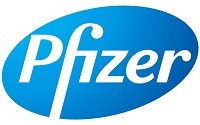 |
The Scoop: Pfizer's ($PFE) Ibrance, named a breakthrough by the FDA, won a speedy FDA approval in February, more than two months ahead of the agency's scheduled decision date. And execs say it's been making the most of its head start; on the company's Q3 conference call, they told investors 15,000 patients had started on the med, which racked up $230 million in sales for the period. But Pfizer isn't stopping there. The company is working to snap up additional approvals for its newcomer, testing it in diseases such as head and neck cancer and advanced pancreatic cancer. -- Carly Helfand
For more:
Pfizer plots Ibrance expansion as early-stage breast cancer trial begins
Pfizer's hot-selling Ibrance gets even hotter with new $710M sales estimate for 2015
Pfizer's breast cancer-fighter Ibrance posts stellar second-line survival data
Pfizer's early bird Ibrance making the most of its head start, execs say
| 5. Lenvima | |
|
Active ingredient: lenvatinib Disease: thyroid cancer Peak sales estimate: $424 million Approved: Feb. 17 Company: Eisai |
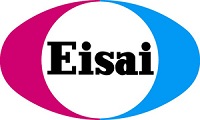 |
The Scoop: EvaluatePharma projects sales of the cancer drug to hit $424 million by 2019, but Japan's Eisai is hoping to reach $1 billion by 2020 on the back of an additional approval to use the tyrosine kinase receptor inhibitor for other cancers, including those of the liver, kidney, lung and endometrium. To that end, in October the company touted the strong Phase II results for Lenvima and everolimus, which were published in the journal Lancet Oncology. They brought the company closer to capitalizing on a breakthrough therapy designation from the FDA to use the drug to treat advanced metastatic renal cell carcinoma. In July, Ivan Cheung, deputy president of the company's global oncology business, called Lenvima "the crown jewel of our portfolio" and said the launch was beating expectations. Eisai aims to treat more than 2,500 patients with the med and introduce Lenvima to more than 20 countries by March 2016. The European Medicines Agency approval in March will help it meet that goal. Lenvima is currently indicated to treat progressive, differentiated thyroid cancer, the most common form of the disease. -- Varun Saxena
For more:
Japan's Eisai highlights Lenvima PhII results in Lancet Oncology
Eisai's launch for 'crown jewel' Lenvima tracking better than execs expected
Eisai gets EMA nod for Lenvima just weeks after FDA approval
Eisai wins an early FDA nod for its self-described cancer blockbuster
| 6. Farydak | |
|
Active ingredient: panobinostat Disease: multiple myeloma Peak sales estimate: $250 million Approved: Feb. 23 Company: Novartis |
 |
The Scoop: In spite of the FDA's Oncologic Drugs Advisory Committee's 5-2 vote against approving panobinostat in 2014, the FDA gave the multiple myeloma drug the green light in February this year. Each year, 21,700 Americans are diagnosed with the disease and 10,710 die from it. The advisory committee flagged Farydak's side effects--which include diarrhea and nausea as well as the risk of gastrointestinal bleeding and liver damage--as too severe to justify approval. The FDA then tacked on three months to its review time for panobinostat, effectively canceling out the priority review it designated to the drug. But Novartis ($NVS) came back with more data from 193 multiple myeloma patients who had failed with Takeda's blockbuster Velcade. The data showed that patients given Farydak in addition to Velcade and dexamethasone showed better progression-free survival than those on the latter two drugs alone. And more patients in the Farydak arm also saw their cancer shrink or disappear than did those in the other arm. Farydak works by blocking both histone and non-histone deacetylase enzymes--abbreviated as HDACs and DACs--which puts stress on cancer cells until they die, leaving healthy cells unharmed. But even though Farydak was the first multiple myeloma drug to be approved this year, it wasn't the last. It faces rising competition from Johnson & Johnson's ($JNJ) Darzalex, Takeda's Ninlaro and AbbVie ($ABBV) and Bristol-Myers Squibb's ($BMY) Empliciti, whose approvals followed Farydak's. -- Amirah Al Idrus
For more:
Novartis bags a surprise approval for the blood cancer-treating panobinostat
Novartis' troubled blood cancer drug is now less of an FDA priority
| 7. Avycaz | |
|
Active ingredient: ceftazidime-avibactam Disease: complicated intra-abdominal infections (cIAI) and complicated urinary tract infections (cUTI), including kidney infections (pyelonephritis) Peak sales estimate: $1 billion Approved: Feb. 25 Company: Allergan |
 |
The Scoop: Actavis--now Allergan ($AGN)--closed its acquisition of Forest Labs in mid-2014, picking up the superbug antibiotic Avycaz in the process. Seven months later, the Big Pharma won FDA approval for the combination antibiotic targeting drug-resistant infections, specifically complicated intra-abdominal infections and urinary tract infections. Avycaz is a combo of the previously approved cephalosporin agent, ceftazidime, and avibactam, a new beta-lactamase inhibitor. Considering the rise of drug-resistant bacteria, the FDA gave Actavis priority review for the drug and approved it on Phase II alone, but with an indication only for patients with limited or no other alternatives. While Allergan controls the drug in the U.S., AstraZeneca ($AZN) does so in the rest of the world. The pair is now carrying out Phase III trials. When these are completed, Allergan plans to bring the data to the FDA in the hopes of expanding the drug's indication, while AstraZeneca will use it to support ex-U.S. approvals. -- Amirah Al Idrus
For more:
Actavis wins FDA approval for a new 'superbug' antibiotic
Can Actavis deliver a promised $6B boost from this pipeline?
| 8. Cresemba | |
|
Active ingredient: isavuconazonium sulfate Disease: invasive aspergillosis and mucormycosis Peak sales estimate: $500 million Approved: March 6 Company: Astellas |
 |
The Scoop: Astellas' Cresemba, an oral and injected antifungal treatment, pulled in an FDA approval in March as the 6th such anti-infective product to gain clearance under the administration's Qualified Infectious Disease Product program, meant to incentivize treatments for life-threatening infections with an additional 5 years of exclusivity. Japan's Astellas picked up the drug back in 2010 from Switzerland's Basilea Pharmaceutica for $86 million upfront and up to $550 million more based on development and sales goals. Cresemba treats the rare, dangerous infections aspergillosis and mucormycosis, seen among chemotherapy patients with organ transplants, and Astellas is looking to expand its indication to other lethal infections. -- Michael Gibney
For more:
Astellas bags FDA approval for a new anti-infective
Astellas' new antibiotic marches toward FDA approval with panel nod
| 9. Unituxin | |
|
Active ingredient: dinutuximab Disease: pediatric neuroblastoma Peak sales estimate: $60 million to $150 million Approved: March 10 Company: United Therapeutics |
 |
The Scoop: United Therapeutics ($UTHR) picked up a valuable priority review voucher for this approval for a drug that treats rare instances of pediatric neuroblastoma. There are only about 650 new cases of neuroblastoma in the U.S. every year, with children under 5 as primary victims of a disease that currently comes with a 40% to 50% chance of long-term survival. The drug is an antibody that binds to the surface of neuroblastoma cells. And the agency notes that the data support its ability to extend survival. -- John Carroll
For more:
United Therapeutics wins FDA OK for rare kids' cancer drug, plus a priority review voucher
| 10. Cholbam | |
|
Active ingredient: cholic acid Disease: a rare group of bile acid synthesis and peroxisomal disorders Peak sales estimate: N/A Approved: March 18 Company: Retrophin (through Asklepion Pharmaceuticals) |
 |
The Scoop: Retrophin ($RTRX) had a deal all lined up to grab Cholbam once the FDA came through on its approval for the rare disease drug. And the biotech got it for a song, paying only $27 million in cash and 661,278 shares with a commitment of up to $37 million in sales milestones. It was a steal. Two months later, Sanofi ($SNY) agreed to fork over $245 million for the review voucher, which cuts four months out of the FDA's review process. Retrophin, founded by the controversial Martin Shkreli, who was later kicked out and sued for allegedly using the company as a piggy bank, was later subjected to criticism from outraged lawmakers for its strategy of bagging drugs cheap and then jacking up the price, an approach that Shkreli took to an extreme at his new company Turing. -- John Carroll
For more:
Sanofi splurges $245M on Retrophin's speedy-review voucher
Retrophin bags rare disease approval, FDA voucher in $75M deal
| 11. Corlanor | |
|
Active ingredient: ivabradine Disease: angina Peak sales estimate: $300 million to $1 billion Approved: April 15 Company: Amgen |
 |
The Scoop: Amgen ($AMGN) never managed to stir much enthusiasm for Corlanor, aside from a few sell-side analysts. The drug, in-licensed from Servier, was approved to help reduce the risk of hospitalization due to heart failure. The drug has stirred controversy in Europe, though, as regulators at the EMA recommended that it only be used for the symptomatic relief of angina, with no real evidence of reduced health risks to back it up. The EMA also warned on atrial fibrillation and drug interactions. Corlanor was also badly overshadowed in the U.S. by Novartis' ($NVS) megablockbuster candidate Entresto. -- John Carroll
For more:
Amgen gets a big win with FDA OK for PCSK9 cholesterol drug Repatha
FDA OKs Novartis' megablockbuster heart failure drug Entresto
| 12. Kybella | |
|
Active ingredient: deoxycholic acid Disease: submental fat, or moderate-to-severe fat below the chin Peak sales estimate: $300 million Approved: April 29 Company: Kythera Biopharmaceuticals |
 |
The Scoop: Kythera Biopharmaceuticals didn't waste any time after buying back Bayer's stake in its double-chin busting therapy in 2014. A year later, the biotech snagged unanimous support from an FDA panel for its injection, ATX-101, paving the way for the agency's fast approval in April. The drug, dubbed Kybella, is injected beneath the chin to destroy fat cells and remove patients' double chins. About 68% of Americans are "bothered" by submental fat, according to a survey by the American Society for Dermatologic Surgery, and Kythera plans on tapping into a growing aesthetics market with its therapy. Allergan ($AGN) also sees big potential in the drug, shelling out $2.1 billion in June for Kythera to get its hands on Kybella and to add to its facial aesthetics portfolio, which includes its blockbuster injection Botox. -- Emily Wasserman
For more:
Allergan's paying $2.1B for Kythera and its double-chin drug
Kythera bags FDA approval for its double-chin-shrinking shot
FDA panel backs Kythera's double chin-fighting shot
Kythera's double chin injection rolls toward FDA approval
Kythera buys back Bayer's stake in PhIII chin-fat therapy in $84M deal
| 13. Viberzi | |
|
Active ingredient: eluxadoline Disease: irritable bowel syndrome Peak sales estimate: $440 million Approved: May 27 Company: Allergan |
 |
The Scoop: Viberzi was the lead candidate of Morrisville, NC's Furiex, which was acquired by Forest Laboratories--which became part of Allergan ($AGN) via Actavis--in 2014 for $1.1 billion plus about $120 million in contingent value rights. The payoff arrived less than a year later, when the FDA approved the drug for IBS with diarrhea, on the same day as it gave the go-ahead for the same indication to Valeant's ($VRX) Xifaxan. Investors were relieved that it avoided a dreaded black-box label for pancreatitis. The just-launched med's revenues will flow to Allergan, which acquired Actavis soon after Viberzi's approval. Actually, the drug launched on Nov. 23, the day Allergan announced that it will be taken over by Pfizer ($PFE) in a $160 billion deal. So the history of Viberzi neatly illustrates the M&A wheeling and dealing that's emblematic of Big Pharma. Company bigwigs tout Viberzi as "the perfect complement" to Linzess, originally approved by Forest Laboratories for IBS with constipation. And under an August agreement, Ironwood Pharmaceuticals' ($IRWD) sales reps will market Viberzi to the 25,000 prescribers they already reach in the U.S. with Linzess. Allergan didn't launch Viberzi right after FDA approval because it had to wait for the Drug Enforcement Agency to schedule the drug as a controlled substance, triggering the $120 million payment. Leerink's Jason Gerberry believes the launch months behind Xifaxan shouldn't damage Viberzi's market share too much, saying it will be used if patients don't respond to the Valeant drug. The company has told Wall Street the initial focus will be on converting patients from over-the-counter products to Viberzi. An EU launch is hoped for in 2017. -- Varun Saxena
For more:
Allergan pumps up its sales rep tally amid Viberzi launch, aesthetics push
Ironwood steps up to challenge Valeant with Allergan's IBS med Viberzi
Valeant plots big DTC push for Xifaxan while rival Actavis drug waits on DEA
GI dealmaking pays off for Valeant, Actavis with same-day FDA nods in IBS
Actavis and Valeant go head-to-head on IBS as FDA OKs 2 new drugs
| 14. Kengreal | |
|
Active ingredient: cangrelor Disease: to prevent the formation of harmful blood clots in the coronary arteries for adult patients undergoing percutaneous coronary intervention Peak sales estimate: $400 million Approved: June 22 Company: The Medicines Company |
 |
The Scoop: After spending close to 9 years in Phase III development, The Medicines Company ($MDCO) finally got the FDA OK for its clot-busting cangrelor. The approval came one year after the FDA's rejection of the drug, which followed the agency's Cardiovascular and Renal Drugs Advisory Committee 7-2 vote against approving it. The FDA cited concerns about the design, oversight and conduct of the drug's Phase III program and ordered The Medicines Company to conduct another study and more analysis on existing Phase III data. Now, the intravenous drug is cleared to prevent blood clots in patients with coronary artery disease who need stents to prop open their blood vessels. About 500,000 people undergo stenting procedures each year, and Kengreal could help decrease heart attack and stroke rates following such procedures. -- Amirah Al Idrus
For more:
Medicines Co. finally wins an FDA nod for the clot-busting cangrelor
Medicines Co.'s cangrelor finally lines up for FDA approval
FDA rejects The Medicines Co.'s clot-buster, sending cangrelor back to the clinic
| 15. Orkambi | |
|
Active ingredient: lumacaftor and ivacaftor Disease: cystic fibrosis Peak sales estimate: $5 billion Approved: July 2 Company: Vertex Pharmaceuticals |
 |
The Scoop: Vertex Pharmaceuticals ($VRTX) wants to tap into a bigger patient pool for its cystic fibrosis meds, and in July the company delivered on this goal with FDA approval for Orkambi. The drug, which combines an investigational treatment with Vertex's other CF med, Kalydeco, is meant to treat about 8,500 patients whose CF is caused by an F508del mutation in their CFTR genes--the largest population of individuals with the disease. Orkambi was named a breakthrough drug by the agency. The FDA blessing for Orkambi gives Vertex a chance to expand its footprint in the CF market and add to Kalydeco's $460-million-a-year haul. But the drug's $259,000-per-year price tag has already drawn pushback from many CF specialists who say that the combo med costs too much for patients to afford. -- Emily Wasserman
For more:
Vertex sees dealmaking, CF meds as defenses against would-be buyers
CF specialists up in arms about $259K price for new Vertex med Orkambi
Vertex wins a crucial FDA nod for its cystic fibrosis combo, prices at $259,000
Look out, payers. Vertex's new CF med Orkambi is one step closer to market
FDA review challenges Vertex on crucial cystic fibrosis combo data
| 16. Entresto | |
|
Active ingredient: sacubitril/valsartan Disease: heart failure with preserved ejection fraction Peak sales estimate: $3.73 billion Approved: July 7 Company: Novartis |
 |
The Scoop: After acing an 8,442-patient Phase III trial, Novartis' ($NVS) heart failure remedy Entresto won an early FDA approval on July 7. With potential to become a megablockbuster based on the clinical benefit and its demand, the circumstances surrounding the drug's approval make it the company's "most exciting launch" in years, pharma chief David Epstein said earlier this year. Phase III study data demonstrated that a set of heart failure patients on the therapy were more likely to be alive and less likely to have been hospitalized than patients taking standard of care enalapril. In fact, trial investigator Dr. Milton Packer was so enthusiastic about the results that he said the drug will "change the management of patients with HFrEF for years to come." With the approval, Bernstein analyst Tim Anderson expressed his belief that payers won't easily refuse to cover the med, and that discounting isn't expected to be a factor. The drug, expected to reap $3.73 billion in peak sales, saw a 1,400% leap in social media interactions following its approval. And Novartis pushed for a performance-based pricing structure with its launch, an effort that drew concerns from leading pharmacy benefit manager Express Scripts' ($ESRX) chief medical officer, Steve Miller. -- Eric Sagonowsky
For more:
Novartis, Roche CEOs see performance-based future, but U.S. isn't ready yet
Analysis: New Novartis heart failure med has consumers talking
Novartis priced Entresto on par with results, new cost watchdog says
Novartis' pay-for-performance Entresto plan has its critics--Express Scripts' Miller among them
Novartis nabs early FDA approval for 'megablockbuster' Entresto
| 17. Rexulti | |||
|
Active ingredient: brexpiprazole Disease: schizophrenia, add-on for depression Peak sales estimate: $1.4 billion Approved: July 11 Companies: Lundbeck and Otsuka |
|
||
The Scoop: Lundbeck and Otsuka won FDA approval this July for Rexulti and are now tasked with launching the therapy in a crowded schizophrenia field occupied by Abilify, its generics and an in-development long-acting therapy from Alkermes ($ALKS). Upon the drug's approval in schizophrenia and as an add-on for depression, the companies--suffering key patent losses--sought to bill Rexulti as a better, branded option than Abilify generics. Rexulti's clinical trials included more than 4,000 patients, and the approval was the culmination of a 4-year-old partnership between the biopharma companies in which Lundbeck committed up to $1.6 billion. With the med, the companies can talk up a marginally improved side effect profile compared to Abilify, but the occurrence of additional weight gain could be a negative factor. Though investigators admitted to not knowing the drug's exact mechanism of action, according to numbers cited by Reuters, analysts are expecting blockbuster performance from the drug, with annual sales of $1.4 billion expected by 2020. Otsuka and Bristol-Myers Squibb ($BMY) lost their final patent ruling on Abilify in April, making the Rexulti launch key for the Japanese drugmaker as it seeks to replace revenue from a drug which in 2013 accounted for 40% of its total sales haul. -- Eric Sagonowsky
For more:
Otsuka stares down another rival with FDA approval for Alkermes' long-acting Abilify
As schizophrenia rivals rush in, Otsuka and Lundbeck gain FDA OK for Rexulti
| 18. Praluent | |
|
Active ingredient: alirocumab Disease: cardiovascular disease Peak sales estimate: $3 billion Approved: July 24 Companies: Sanofi and Regeneron |
  |
The Scoop: Sanofi ($SNY) and Regeneron ($REGN) won the race to commercialize the first among a new class of injectable therapies for high cholesterol, beating rival Amgen ($AMGN) thanks to a controversial FDA program. Praluent, like Amgen's Repatha, is an antibody that blocks the protein PCSK9 and thereby helps the body clear excess LDL, or bad, cholesterol from the blood. The treatment, invented by Regeneron, is approved as a complement to generic statin therapy for patients with cardiovascular disease who need more help getting their cholesterol under control, including sufferers of a rare genetic disorder called familial hypercholesterolemia. While each treatment is expected to eventually achieve blockbuster status, the future of PCSK9 blockers depends heavily on results from long-term studies designed to determine whether the cholesterol-lowering treatments can improve rates of heart attack, stroke and cardiovascular death. Data from those trials aren't expected until 2017. -- Damian Garde
For more:
Amgen gets a big win with FDA OK for PCSK9 cholesterol drug Repatha
Sanofi and Regeneron pick up a blockbuster cardio approval--with a catch
Ready to prescribe PCSK9 meds? Doctors say yes, yes, yes
| 19. Odomzo | |
|
Active ingredient: sonidegib Disease: locally advanced basal cell carcinoma Peak sales estimate: $800 million Approved: July 24 Company: Novartis |
 |
The Scoop: Novartis ($NVS) has big plans for its oncology division, pushing new treatments down the pipeline and plugging for expanded indications for promising new therapies. The company got a boost in July with FDA approval for Odomzo, an oral treatment for basal cell carcinoma (BCC), the most common form of skin cancer, which affects about 3 million Americans each year. Regulators based their approval on data from a Phase II trial, which found that more than half of patients taking the med saw their tumors shrink or disappear. Novartis also seems to picking up steam with Odomzo across the pond. The drug scored European approval in August less than a month after getting its FDA signoff. But Odomzo faces competition from Roche's ($RHHBY) Erivedge, which was the first oral drug approved for BCC. -- Emily Wasserman
For more:
Novartis wins an early approval for a new skin cancer drug
| 20. Daklinza | |
|
Active ingredient: daclatasvir Disease: used with sofosbuvir to treat hepatitis C virus genotype 3 infections Peak sales estimate: N/A Approved: July 24 Company: Bristol-Myers Squibb |
 |
The Scoop: With Daklinza, Bristol-Myers Squibb ($BMY) is looking for a niche to scratch. Actually multiple niches. By the time the BMS hep C drug hit the market last year, Sovaldi from Gilead Sciences ($GILD) was already wildly successful, and Gilead's Harvoni combo pill was on its way to approval for a broader use. AbbVie's ($ABBV) Viekira Pak was on the cusp of approval as well and had already been anointed by some payers as the drug they would turn to with exclusive deals to extract a price break from BMS. So Bristol-Myers decided rather than try to take them on head-on, it would mine for sales in the subpopulations of hep C sufferers Gilead and AbbVie were less concerned with. In fact, Daklinza's first approval was in Europe for use in combination with Sovaldi to treat a broad range of hep C patients, including some hard-to-treat groups, such as patients who have failed on previous therapies. The FDA later approved it for use alongside Sovaldi in patients with difficult-to-treat hep C genotype 3 and granted a breakthrough designation in May for treating genotype 1 patients with advanced cirrhosis. More recently, Daklinza won priority review for three new indications in hard-to-treat patients. Regulators will examine the med for use with Gilead's Sovaldi in those who are coinfected with HIV-1, suffering from advanced cirrhosis or experiencing recurrence of hep C after a liver transplant. While early indications indicate BMS is doing well with its approach, it is unlikely to have that piece of the market all to itself for long. Merck ($MRK) is looking for a 2016 approval for its entry in the hep C field, and it has also said it will be looking at targeting hard-to-treat patients. Daklinza will never get the kinds of rewards that Gilead's drugs are reaping, but with $892 million in sales in the first three quarters, it is on track to become a blockbuster this year. -- Eric Palmer
For more:
U.K. cost watchdog gives thumbs-up to Bristol-Myers' hep C drug
Can Daklinza profit from a set of niche hep C uses? BMS may soon find out
Bristol-Myers gets the approval Gilead didn't want: Daklinza + Sovaldi for hep C
| 21. Addyi | |
|
Active ingredient: flibanserin Disease: hypoactive sexual desire disorder Peak sales estimate: $100 million to $300 million Approved: Aug. 18 Companies: Sprout Pharmaceuticals and Valeant Pharmaceuticals |
  |
The Scoop: The decision to sign off on Addyi, a twice-rejected libido treatment for women, marked the FDA's most controversial approval in 2015, as the drug's modest efficacy and serious safety risks drew flak from public health advocates and physicians. The drug is meant to increase sexual desire in premenopausal women diagnosed with hypoactive sexual desire disorder by boosting dopamine and norepinephrine levels in the brain. Invented by Boehringer Ingelheim, Addyi endured its first FDA rejection in 2010 after failing to meet its main goals in two Phase III studies. Sprout picked it up thereafter, running another late-stage trial and demonstrating what FDA staff termed "modest" results, leading to a second rejection in 2014. But on the third try, Sprout successfully convinced the agency that its once-a-day pill had enough of a benefit to overcome risks of fainting and low blood pressure, finally winning approval and, within a day, announcing that Valeant Pharmaceuticals ($VRX) had agreed to buy the company for $1 billion. The controversy over Addyi is further complicated by the previous lack of approved products for female sexual desire disorder, which stands in stark contrast to the more than 20 drugs available for erectile dysfunction. During the FDA's review process, advocacy groups painted that disparity as evidence of gender bias at the agency, a claim Janet Woodcock, head of the FDA's drug approval arm, has repeatedly contested. -- Damian Garde
For more:
Controversial Valeant Pharma swoops in with a $1B Addyi buyout
The FDA blundered badly on the Addyi approval
FDA clears a controversial female libido drug despite 'modest' effects and dangerous risks
| 22. Repatha | |
|
Active ingredient: evolocumab Disease: cardiovascular disease Peak sales estimate: $3 billion Approved: Aug. 27 Company: Amgen |
 |
The Scoop: Amgen's ($AMGN) injected therapy, like one from rivals Sanofi ($SNY) and Regeneron ($REGN), is an antibody proven to lower levels of LDL, or bad, cholesterol far better than generic statins, but its blockbuster potential hinges on some long-term studies yet to wrap up. Repatha works by blocking a protein called PCSK9 and thereby helping the body clear out bad cholesterol from the blood. It's approved to treat patients with cardiovascular disease not controlled by statin therapy, plus a rare disease that results in sky-high cholesterol. Like Sanofi and Regeneron's Praluent, also approved this year, Amgen's treatment has excelled at lowering LDL, but it remains to be seen how well doing so translates to prolonging patients' lives. All of the companies in the PCSK9 field are running long-term outcomes trials to suss that out, expecting to report data in 2017 that will determine whether their therapies can improve rates of heart attack, stroke and cardiovascular death. -- Damian Garde
For more:
Amgen gets a big win with FDA OK for PCSK9 cholesterol drug Repatha
Sanofi and Regeneron pick up a blockbuster cardio approval--with a catch
Ready to prescribe PCSK9 meds? Doctors say yes, yes, yes
| 23. Varubi | |
|
Active ingredient: rolapitant Disease: chemotherapy-induced vomiting Peak sales estimate: $400 million Approved: Sept. 2 Company: Tesaro |
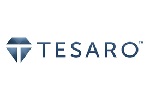 |
The Scoop: Waltham, MA-based Tesaro wrangled an FDA approval for rolapitant, to be marketed as Varubi, after a longer-than-expected R&D trail. A major bump along the road was a Phase III failure in 2013 on secondary endpoints, but the company succeeded in its second go-round a year later. The drug is designed to prevent nausea and vomiting as a common side effect of chemotherapy. In the other corner, though, is Merck's ($MRK) rival Emend, which earns more than $500 million a year, but Tesaro remains optimistic. Lonnie Moulder, Tesaro's CEO, said at the time of approval: "Results from the Phase III trials of Varubi demonstrated that patients receiving emetogenic chemotherapy agents, including platinum and cyclophosphamide-containing regimens, benefited from the addition of Varubi to their antiemetic regimen. Data from multiple well-controlled trials demonstrate that patients who receive only a 5-HT3 receptor antagonist and dexamethasone often continue to suffer from nausea and vomiting for several days following chemotherapy administration." -- Michael Gibney
For more:
Tesaro gets a green light for rolapitant, triggering Merck showdown
Tesaro preps for a Merck showdown after seeing positive PhIII results for rolapitant
| 24. Xuriden | |
|
Active ingredient: uridine triacetate Disease: hereditary orotic aciduria Peak sales estimate: N/A Approved: Sept. 4 Company: Wellstat |
 |
The Scoop: Hereditary orotic aciduria is an ultrarare disease that affects about 20 patients worldwide. Caused by the inability to properly synthesize uridine, a component of RNA, it leads to decreased white blood cell count, urinary tract obstruction and developmental delays. Xuriden, a pill that replaces the missing uridine, was tested in 4 of the 20 patients with the disease in a single-arm study. Little-known Wellstat of Gaithersburg, MD, said it will make the med commercially available in 2016, at which point it will announce the price. But the company has already received a payoff from approval in the form of a rare pediatric disease priority review voucher. Priority review vouchers are granted to successful developers of drugs for certain rare pediatric or tropical diseases. When redeemed, the voucher requires the FDA to finish its review in 6 months instead of the usual 10. Wellstat immediately sold the voucher to AstraZeneca ($AZN) for an undisclosed sum. Earlier this year, United Therapeutics ($UTHR) sold its priority review voucher to AbbVie ($ABBV) for a record $350 million, and another voucher was transferred for $245 million. And last year, Sanofi ($SNY) and Regeneron ($REGN) purchased a voucher from BioMarin ($BMRN) for $67.5 million in a successful bid to earn FDA approval of their cholesterol-lowering PCSK9 therapy Praluent a few months before Amgen's ($AMGN) similar Repatha. -- Varun Saxena
For more:
Shkreli's KaloBios buys an old drug with eyes on a lucrative FDA voucher
AstraZeneca nabs priority review voucher as Wellstat bags FDA OK
AbbVie hands United a record $350M payoff for a speedy FDA review voucher
Sanofi splurges $245M on Retrophin's speedy-review voucher
| 25. Vraylar | |
|
Active ingredient: cariprazine Disease: schizophrenia and bipolar disorders Peak sales estimate: $200 million to $300 million Approved: Sept. 17 Company: Allergan |
 |
The Scoop: Allergan ($AGN) snagged FDA approval in September for a sort-of-new antipsychotic, Vraylar, to treat schizophrenia and bipolar disorder in adults. The drug was originally developed by Forest Laboratories and Gedeon Richter and was picked up last year when Allergan bought Forest. Those two had submitted it to the FDA more than two years ago but were asked by the agency do a deeper dive on dosing to help avoid side effects that turned up in the initial clinical trials. In the two-year hiatus, an already crowded market for antipsychotics has gotten even more challenging. This summer it was flooded with generics of Abilify, the popular drug from Bristol-Myers Squibb ($BMY) and Otsuka that last year rang up more than $5.5 billion in sales. Otsuka and Lundbeck got approval this year for Rexulti (brexpiprazole), an add-on therapy for depression and schizophrenia which is expected to reach blockbuster sales. There is also Sunovion's Latuda and Novartis' ($NVS) Fanapt. Allergan also has Saphris, a drug Forest bought from Merck ($MRK) weeks after failing to get approval in the first go-round with Vraylar. That leaves the question of where it fits in and what it can do sales-wise for the drugmaker. Allergan has said it expects to pick up about $300 million a year from the med, but low-ball forecasts before the CRL two years ago pegged it at $200 million. -- Eric Palmer
For more:
Allergan and Richter's antipsychotic gets FDA OK but faces stiff competition
Otsuka, Lundbeck bag blockbuster FDA approval for antipsychotic Rexulti
Otsuka faces the music for generic Abilify, loses battle with FDA
FDA opens floodgates to generics of Bristol-Myers' Abilify
Forest's antipsychotic ambitions thwarted by FDA delay
| 26. Lonsurf | |
|
Active ingredient: trifluridine and tipiracil Disease: colorectal cancer Peak sales estimate: N/A Approved: Sept. 22 Company: Otsuka |
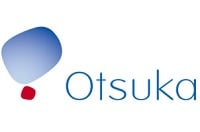 |
The Scoop: Otsuka won FDA approval for its combination drug to treat colorectal cancer in September, nearly three months ahead of schedule. The combo, known as TAS-102, is already marketed as Lonsurf in Japan by Otsuka's Taiho Pharmaceutical subsidiary. It comprises the cancer-killing trifluridine and tipiracil, which is designed to block enzymes that protect tumors from trifluridine. The FDA OK'd the drug to treat refractory metastatic colorectal cancer in patients whose tumors have spread even after they underwent first-line therapies. In an 800-patient Phase III study, the combo beat placebo in extending progression-free survival. Otsuka filed a regulatory submission for Europe in March and has French drugmaker Servier waiting in the wings to market the drug on the continent. -- Amirah Al Idrus
For more:
Otsuka wins early FDA approval for a colorectal cancer combo drug
| 27. Tresiba | |
|
Active ingredient: insulin degludec injection Disease: diabetes Peak sales estimate: $3 billion Approved: Sept. 25 Company: Novo Nordisk |
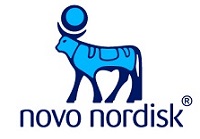 |
The Scoop: When Novo Nordisk's ($NVO) long-acting insulin Tresiba first came up for approval in 2013, a dogfight was expected between it and Sanofi's ($SNY) blockbuster Lantus, a product with $7 billion in sales and a near monopoly. But the FDA spurned Tresiba, asking for more safety data. Approved two-and-a-half years later, it is no longer just Lantus that Tresiba must scrap with for market share but also Sanofi's Toujeo. The French drugmaker's follow-up to Lantus was approved 6 months before Tresiba, giving Sanofi time to get established in the marketplace ahead of the Tresiba launch. Novo had hoped to score a marketing edge with data showing that Tresiba triggers fewer episodes of hypoglycemia--low blood sugar--than Lantus, but the FDA didn't put that on the label. Further complicating Tresiba's place in the world is the fact that a third dog will soon challenge both drugmakers' aspirations. Eli Lilly ($LLY) and partner Boehringer Ingelheim have already nabbed approval in the U.K. for their Lantus biosimilar Abasaglar and are shooting for an FDA nod next year. That means where doctors had only one drug for their patients two years ago, they will soon have four choices, including a biosimilar that is expected to undercut the price of Toujeo, Tresiba and Lantus. -- Eric Palmer
For more:
Sanofi patent deal lets Lilly roll out a Lantus biosim in U.S. next December
Novo combats talk of insulin price war with 'moderate premium' on brand-new Tresiba
Sanofi's fight for Toujeo market share won't be easy, analysts say
| 28. Aristada | |
|
Active ingredient: aripiprazole lauroxil Disease: schizophrenia Peak sales estimate: $550 million by 2020 Approved: Oct. 6 Company: Alkermes |
 |
The Scoop: Alkermes' ($ALKS) Aristada is a long-acting version of Otsuka's schizophrenia treatment Abilify, which went generic earlier this year. The slow activation of the drug in the body is what Alkermes hoped would help it stand out in a competitive field, including Abilify's generics and two newly approved drugs this year: Otsuka's and Lundbeck's Rexulti and Allergan ($AGN) and Gedeon Richter's Vraylar. Alkermes' Aristada is the only treatment for schizophrenia that's approved for both once-a-month and once-every-6-weeks administration. In improving the management of the disease, the regimen itself will be an important selling point. -- Michael Gibney
For more:
Alkermes wins an FDA nod for its monthly schizophrenia drug
| 29. Praxbind | |
|
Active ingredient: idarucizumab Disease: Pradaxa antidote Peak sales estimate: N/A Approved: Oct. 16 Company: Boehringer Ingelheim |
 |
The Scoop: Boehringer Ingelheim won approval back in 2010 for its new-age anticoagulant Pradaxa, but the drug, along with others in its class, has had some trouble gaining traction against old-guard warfarin due to doctors' concerns over the lack of an antidote. Now, with the FDA's approval of Pradaxa antidote Praxbind from Boehringer Ingelheim, the company is hoping that will change. The FDA approved Praxbind on October 16, with the agency's hematology director, Dr. Richard Pazdur, saying it'll be "an important tool for managing patients taking Pradaxa in emergency or life-threatening situations when bleeding can't be controlled." Boehringer Ingelheim is hoping the approval will help its anticoagulant gain on Xarelto from Johnson & Johnson ($JNJ) and Bayer while giving it a leg up against others in the class such as Eliquis from Pfizer ($PFE) and Bristol-Myers Squibb ($BMY) and Savaysa from Daiichi Sankyo. Competition is on the horizon though, as Portola Pharma ($PTLA) is testing another antidote in Phase III, having previously signed on with Daiichi and the teams from J&J/Bayer and Pfizer/BMS. -- Eric Sagonowsky
For more:
Boehringer wins FDA OK for Pradaxa antidote, eyes bigger market share
Boehringer looks for Pradaxa boost from now FDA-approved antidote
How can Pradaxa, Xarelto and Eliquis finally unseat warfarin? Safety data, analyst says
| 30. Veltassa | |
|
Active ingredient: patiromer for oral suspension Disease: hyperkalemia Peak sales estimate: $1 billion Approved: Oct. 21 Company: Relypsa |
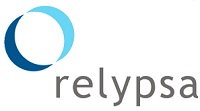 |
The Scoop: Sometimes being first isn't all it's cracked up to be. Relypsa ($RLYP) learned that lesson the hard way in October after winning FDA approval for Veltassa, a brand-new therapy for hyperkalemia. Regulators approved the drug with a black-box warning, which said that Veltassa should be taken 6 hours apart from oral meds because of the way it interacts with other treatments. The Redwood City, CA-based company has a deal with Sanofi ($SNY) to sell Veltassa through its renal sales group, but the drugmakers could face some stiff competition in the future as payers grapple with the cost of new therapies and rival meds enter the market. ZS Pharma is waiting on FDA approval for its own hyperkalemia treatment, ZS-9. And AstraZeneca ($AZN) sees big potential in the med, recently shelling out $2.7 billion to get its hands on ZS' blockbuster-in-the-making. -- Emily Wasserman
For more:
Relypsa wins patiromer OK but gets hammered on black box restrictions
Relypsa, Sanofi marketing teams revved up and waiting for FDA nod on patiromer
Sanofi adds marketing heft to Relypsa's forthcoming patiromer launch
| 31. Strensiq | |
|
Active ingredient: asfotase alfa Disease: perinatal, infantile and juvenile-onset hypophosphatasia (HPP) Peak sales estimate: $500 million Approved: Oct. 23 Company: Alexion Pharmaceuticals |
 |
The Scoop: Alexion Pharmaceuticals ($ALXN) struck a $1.08 billion deal in 2012 for Enobia, the prize of which was Strensiq, its enzyme-replacement therapy for hypophosphatasia, an ultrarare metabolic condition characterized by skeletal deformation and organ damage. It was one of a number of deals Alexion hammered out to expand after winning widespread approval of Soliris, a treatment for several rare blood diseases. With the success of Soliris, a drug that has been termed the most expensive in the world at more than $500,000 a year, Cheshire, CT-based Alexion has garnered a reputation as an expert on marketing in the rare disease arena. But it surprised markets when it set the price for Strensiq, which the FDA named a breakthrough drug. It said the annual average price, which takes into account discounts and rebates, was expected to be $285,000, far shy of the $400,000 consensus that at least one analyst had expected. Some observers speculated on Twitter that Alexion may have balked at a higher price given the current national brouhaha over high drug prices. Strensiq was also approved in the EU in September, but in England, the national price watchdog turned it down in a preliminary decision. NICE said it needs far more justification for Strensiq's retail price of £340,200 ($569,000) per year there to treat a condition that is diagnosed in fewer than 10 children a year. -- Eric Palmer
For more:
NICE balks at Alexion's $552K price for orphan drug Strensiq
Alexion wins FDA OK on Strensiq, but startles analysts on price
Alexion wins a pair of EU approvals to build out its rare disease ranks
Alexion scoops up rare disease drug in $1.08B Enobia buyout
| 32. Yondelis | |
|
Active ingredient: trabectedin Disease: soft-tissue sarcomas, ovarian cancer Peak sales estimate: €300 million ($330 million) Approved: Oct. 23 Company: Johnson & Johnson |
 |
The Scoop: Johnson & Johnson ($JNJ) suffered a big setback 6 years ago when the FDA rejected Yondelis on the company's first attempt and then again two years later. On its third go, though, J&J came through with an approval on their exclusive U.S. rights for the cancer treatment designed for soft-tissue sarcomas and ovarian cancer. Spanish drugmaker Zeltia licensed Yondelis to J&J back in 2001, and though the drug was approved in the European market in 2007 and made €43.6 million ($48 million) in the first half of this year, FDA oncology head Dr. Richard Pazdur said of Yondelis and its effectiveness: "The treatment of advanced or metastatic soft tissue sarcoma represents a difficult challenge with few effective therapeutic choices available for patients." -- Michael Gibney
For more:
J&J's Yondelis finally captures FDA nod, but path to big sales could be steep
J&J's cancer drug finally wins FDA approval after 6 years of delay
| 33. Nucala | |
|
Active ingredient: mepolizumab Disease: severe asthma Peak sales estimate: $600 million to $1 billion-plus Approved: Nov. 4 Company: GlaxoSmithKline |
 |
The Scoop: Glaxo ($GSK) has been working to beef up its respiratory offerings as U.S. payer pressure and European generics take their toll on giant Advair. Most recently, it snagged approval for new med Nucala, green-lighted by the FDA to treat severe asthma with eosinophilic inflammation. And while the drug doesn't have a huge patient population--GSK estimated before approval that only about 300,000 to 400,000 severe asthma patients in the U.S. would meet prescribing recommendations--Nucala is the only drug that specifically addresses eosinophilic inflammation. Additionally, the med widens GSK's range of respiratory therapies, which it figures could help it strike payer deals at the portfolio level. -- Carly Helfand
For more:
GSK shoots for diabetes-esque platform approach with new respiratory med in hand
GlaxoSmithKline bags an FDA OK for its asthma drug with eyes on a respiratory turnaround
GSK readies respiratory sales force to challenge Xolair in severe asthma
| 34. Genvoya | |
|
Active ingredient: emtricitabine, cobicistat, elvitegravir and tenofovir alafenamide Disease: HIV Peak sales estimate: N/A Approved: Nov. 5 Company: Gilead |
 |
The Scoop: The most recent success in Gilead Sciences' ($GILD) pipeline of mix-and-match HIV treatments, Genvoya won FDA approval on Nov. 5 for patients with HIV genotype 1 who have taken an antiviral or whose virus is already suppressed. The med combines the active ingredients in Emtriva, Tybost, Vitekta and the investigational tenofovir alafenamide, a more powerful version of Gilead's own Viread. With the approval, the Foster City, CA-based Big Biotech will seek to bill the drug as a safer competitor to previously available meds. In October, two Phase III trials showed Genvoya was equivalent to Gilead's four-drug combo Stribild but with a much more desirable safety profile, Gilead said. However, the new med carries an FDA black-box warning for the possibility of lactic acid buildups and liver problems and is contraindicated for patients with severe kidney impairments. With Genvoya and its other meds in the HIV space, Gilead will seek to fend off competition from Johnson & Johnson ($JNJ) and the joint venture ViiV Healthcare, owned by GlaxoSmithKline ($GSK), Pfizer ($PFE) and Shionogi. The diverse set of competitors are each seeking their chunk of a multibillion-dollar market by developing combo drugs that tackle HIV with fewer side effects. -- Eric Sagonowsky
For more:
Gilead wins FDA approval for a new HIV combo pill with rivals at its heels
J&J and ViiV's long-acting HIV treatment stacks up to daily pills in Phase II
Gilead takes a $125M FDA shortcut with its latest HIV combo
| 35. Cotellic | |||
|
Active ingredient: cobimetinib Disease: advanced melanoma Peak sales estimate: $800 million Approved: Nov. 10 Companies: Genentech/Exelixis |
|
||
The Scoop: Zelboraf (vemurafenib) hasn't been quite the blockbuster it was expected to be when it was approved by the FDA in 2011. It was the first drug the agency approved specifically for melanoma with a certain type of abnormal BRAF gene. Roche ($RHHBY) subsidiary Genentech developed Zelboraf with Plexxikon. Now, it's garnered an approval for Cotellic, which is intended to be used in combination with Zelboraf. Cotellic was also developed by Genentech, but this time in partnership with biotech Exelixis ($EXEL). The indication for the combo is specifically to treat advanced melanoma that has spread to other parts of the body or can't be removed by surgery, and that has a BRAF V600E or V600K mutation. An estimated 74,000 Americans are diagnosed with melanoma annually, with about 9,900 dying of it every year. The FDA approved Cotellic for use with Zelboraf under its priority review program that shortens the time frame to 6 months. It also received orphan drug designation. Cotellic is a MEK inhibitor, while Zelboraf is a BRAF inhibitor. The former is intended to prevent or slow cancer cell growth, while the latter causes cancer cell death. A pivotal 495-patient study of the two in combination found that patients on the combo lived on average for 12.3 months after start of treatment, while those on Zelboraf alone lived only about 7.2 months. "As we continue to advance our knowledge of tumor biology, we have learned that cancer cells have a remarkable ability to adapt and become resistant to targeted therapies. Combining two or more treatments addressing different cancer-causing targets may help to address this challenge," commented Dr. Richard Pazdur, director of the Office of Hematology and Oncology Products in the FDA's Center for Drug Evaluation and Research, in a statement when Cotellic was approved. -- Stacy Lawrence
For more:
Genentech, Exelixis win FDA OK to market cobimetinib combo for skin cancer
Genentech, Exelixis score another PhIII success for cobimetinib
Exelixis soars as a once-failed cancer drug comes through in Phase III
FDA taps the brakes on Genentech's cobimetinib review
Roche and Exelixis roll toward FDA approval with a melanoma cocktail
Roche and Exelixis head to the FDA with their melanoma combo
Roche and Exelixis herald a Phase III victory for their melanoma combo
| 36. Tagrisso | |
|
Active ingredient: osimertinib (AZD9291) Disease: advanced non-small cell lung cancer Peak sales estimate: $3 billion Approved: Nov. 13 Company: AstraZeneca |
 |
The Scoop: AstraZeneca ($AZN) got an accelerated approval for Tagrisso three months ahead of its slated PDUFA date, indicating the agency's enthusiasm for targeted cancer treatments. The oral pill treats non-small cell lung cancer patients whose tumors share a T790M EGFR mutation. The treatment was approved alongside the first companion diagnostic test to detect that type of EGFR resistance mutation, the cobas EGFR Mutation Test v2 from Roche ($RHHBY). "Our understanding of the molecular basis of lung cancer and reasons these cancers become resistant to prior treatments is rapidly evolving," commented Dr. Richard Pazdur, director of the Office of Hematology and Oncology Products in the FDA's Center for Drug Evaluation and Research, in a statement at the time. "This approval provides a new treatment for patients who test positive for the EGFR resistance mutation, T790M, and is based on substantial evidence from clinical trials that shows Tagrisso had a significant effect on reducing tumor size in over half of patients who were treated." AstraZeneca priced Tagrisso at $12,750 per month, or $153,000 for a full year of treatment, which it said is in line with the cost of other targeted cancer pills, including its own Iressa. The drug is a key part of an ambitious $45 billion annual sales figure that AstraZeneca CEO Pascal Soriot committed to while fending off a takeover attempt by Pfizer ($PFE) last year. -- Stacy Lawrence
For more:
AstraZeneca stokes Tagrisso's blockbuster hopes with $12,750-per-month sticker
Clovis Oncology shares crash after lung cancer response rate deteriorates
AstraZeneca wins big with fast FDA OK of AZD9291 for lung cancer
AstraZeneca scoops up Amgen U.S. plant to boost biologics capacity
AstraZeneca snags $300M from Sanofi for rare cancer med amid cash-generating deal spree
| 37. Darzalex | |
|
Active ingredient: daratumumab Disease: multiple myeloma Peak sales estimate: $4 billion Approved: Nov. 16 Company: Janssen Biotech (Johnson & Johnson) |
 |
The Scoop: The FDA added Darzalex to the ranks of approved multiple myeloma treatments, but only for patients who have received at least three prior treatments. It's the first monoclonal antibody approved to treat multiple myeloma. J&J picked up the drug from Genmab in a deal for up to $1.1 billion in 2012. "Targeting proteins that are found on the surface of cancer cells has led to the development of important oncology treatments," said Dr. Richard Pazdur, director of the Office of Hematology and Oncology Products in the FDA's Center for Drug Evaluation and Research, in a statement when the drug was approved. "Darzalex provides another treatment option for patients with multiple myeloma who have become resistant to other therapies." Darzalex is an IgG1k antibody that binds to CD38 on the surface of multiple myeloma cells. -- Stacy Lawrence
For more:
Bristol-Myers puts a blockbuster $142K price on new cancer med Empliciti
Amgen looks to Europe for Kyprolis boost as it battles Pomalyst, Darzalex at home
Amgen nabs Kyprolis OK in Europe as U.S. competition mounts
Takeda's 'breakthrough' Velcade heir wins early FDA approval in myeloma
J&J undercuts Celgene's Pomalyst with $135K-per-year Darzalex price
J&J nabs an early OK for 'breakthrough' multiple myeloma blockbuster contender Darzalex
| 38. Ninlaro | |
|
Active ingredient: ixazomib Disease: multiple myeloma Peak sales estimate: $1.5 billion Approved: Nov. 20 Company: Takeda |
 |
The Scoop: Takeda, only a year away from the patent expiration of its blockbuster cancer drug Velcade, scored a sizable victory with the approval of Ninlaro, the old drug's heir. Like Velcade, the new treatment is a proteasome inhibitor, designed to kill tumors by cutting off the production of proteins they need to grow. But unlike the old injectable, Ninlaro is a pill, giving it the chance to eventually lead the fast-crowding market for multiple myeloma treatments. The initial approval covers Takeda's drug for use alongside Celgene's ($CELG) Revlimid in myeloma patients who have already undergone first-line therapy. The Japanese drugmaker is now working through four additional Phase III studies designed to widen ixazomib's indication, testing the drug in newly diagnosed myeloma and amyloidosis. -- Damian Garde
For more:
Takeda's 'breakthrough' Velcade heir wins early FDA approval in myeloma
Takeda says its 'breakthrough' cancer drug came through in Phase III
Takeda scores a 'breakthrough' tag for PhIII rare disease drug
| 39. Portrazza | |
|
Active ingredient: necitumumab Disease: advanced squamous non-small cell lung cancer Peak sales estimate: $450 million Approved: Nov. 24 Company: Eli Lilly |
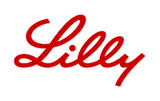 |
The Scoop: After reporting less-than-stellar Phase III data, Portrazza still went on to nab an FDA approval. But expectations for it aren't very high. The indication is specifically for use in combination with two forms of chemotherapy to treat patients with metastatic squamous non-small cell lung cancer who have not previously received medication specifically for treating their advanced lung cancer. "Lung cancer tumors can be varied, so treatment options need to be tailored to the specific type of lung cancer in the patient," said Dr. Richard Pazdur, director of the Office of Hematology and Oncology Products in the FDA's Center for Drug Evaluation and Research at the time of the approval. "Today's approval provides certain patients with squamous cell lung cancer a new option that may extend survival." Portrazza is a monoclonal antibody that blocks activity of EGFR, a protein commonly found on squamous NSCLC tumors. In the 1,093-patient pivotal trial, patients taking Portrazza plus gemcitabine and cisplatin lived an average of 11.5 months, compared with those taking only gemcitabine and cisplatin, who lived an average of 9.9 months. -- Stacy Lawrence
For more:
Lilly's middling lung cancer drug wins FDA approval with a restrictive label
Eli Lilly's marginal cancer drug becomes Exhibit A in pricing debate
Eli Lilly gains FDA advisers' support for a questionable lung cancer drug
Eli Lilly preps a familiar case for FDA review of a marginal cancer drug
| 40. Empliciti | |
|
Active ingredient: elotuzumab Disease: multiple myeloma Peak sales estimate: $300 million-plus Approved: Nov. 30 Companies: Bristol-Myers Squibb, AbbVie |
  |
The Scoop: The FDA handed out its "breakthrough" designation for this drug in 2014, inspired by solid Phase II data for multiple myeloma. The Phase III, which combined the drug in a cocktail with Celgene's ($CELG) Revlimid and generic dexamethasone, outperformed the pair. The drug zeroes in on signaling lymphocyte activation molecule (SLAMF7) antigen and is believed to both target multiple myeloma cells and spur an immune system attack by acting on natural killer cells. Shortly after the approval, the drugmakers priced it at $142,000, leading some analysts to wonder if the drug may be relegated by payers to a third-line treatment, which would narrow its market opportunity. There's plenty of competition in that area, including Johnson & Johnson's ($JNJ) newly approved Darzalex (daratumumab). -- John Carroll
For more:
Bristol-Myers and AbbVie win FDA approval for a 'breakthrough' myeloma treatment
Bristol-Myers and AbbVie speed toward FDA approval with a 'breakthrough' cancer drug
Analyst ranks the top 11 pharma giants' prospects, putting GSK on top
| 41. Kanuma | |
|
Active ingredient: sebelipase alfa Disease: lysosomal acid lipase (LAL) deficiency Peak sales estimate: $800 million to $1.5 billion Approved: Dec. 8 Company: Alexion |
 |
The Scoop: Alexion ($ALXN) bought a ticket on a fast train to marketing approval for Kanuma when it acquired Synageva earlier in the year for $8.4 billion. LAL deficiency causes a reduction in enzyme activity that allows fat to build up in certain cells, triggering an assortment of fatal complications for infants. Alexion also won approval to use genetically engineered chickens to produce the treatment in egg whites. The biotech held back on announcing a price when the approval came through, but it's not likely to be cheap. Their first approved drug, Soliris, is counted as one of the most expensive in the world, with Strensiq commanding a hefty $285,000 price. Fewer than 20 new patients a year will be in line for the drug, and some quick math on peak sales estimates indicates that the retail value will be sky high. -- John Carroll
For more:
Alexion grabs an FDA OK--the 41st of '15--for rare-disease drug Kanuma
Alexion runs into an FDA delay with its latest rare disease drug
Alexion wins a pair of EU approvals to build out its rare disease ranks
| 42. Alecensa | |||
|
Active ingredient: alectinib Disease: ALK-positive non-small cell lung cancer Peak sales estimate: N/A Approved: Dec. 11 Company: Genentech/Roche |
|
||
The Scoop: Alecensa proved its ability to shrink tumors in up to 44% of patients with ALK-positive NSCLC, with a subset of patients whose cancer had spread to the brain and the central nervous system doing even better. That mid-stage data was good enough for an accelerated approval of the drug, which was developed by Chugai, majority-owned by Roche ($RHHBY). Back in the fall of 2013 the FDA handed along its breakthrough therapy designation for alectinib, its second BTD. The approval came through for its use as a follow-up to Xalkori, but Roche is now hustling along a late-stage trial in hopes of winning the FDA's OK to use it as a first-line drug. -- John Carroll
For more:
Roche wins FDA approval for a new lung cancer drug
Roche adds a slate of PhIII schizophrenia trial failures to bitopertin's obituary
Analysts score the winners in the FDA's new 'breakthrough' category
| 43. Bridion | |
|
Active ingredient: sugammadex Disease: reversing the effects of neuromuscular blockade Peak sales estimate: $270 million by 2020 Approved: Dec. 15 Company: Merck |
 |
The Scoop: Bridion had already been rejected once when Merck ($MRK) acquired the anesthesia-reversing drug in its big Schering Plough buyout back in 2009. And it remained in limbo through two more rejections over the next 6 years. Merck, though, remained doggedly determined to gain an approval for what it believes is a major product addition. Regulators have fretted about infrequent instances of anaphylaxis, a severe and potentially lethal allergic reaction. Doctors were also warned to monitor for slowing heart action that could spur cardiac arrest. Bridion's troubled regulatory history and the warnings surrounding its release are likely to severely limit its use to certain extreme cases. -- John Carroll
For more:
After a 7-year odyssey at the FDA, Merck finally wins an OK for Bridion
Turns out drugmakers don't tell the whole truth about FDA rejections
FDA bats down Merck's sugammadex in third rejection
| 44. Uptravi | |
|
Active ingredient: selexipag Disease: pulmonary arterial hypertension Peak sales estimate: $1.4 billion Approved: Dec. 22 Company: Actelion |
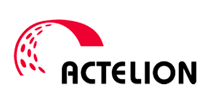 |
The Scoop: The FDA's decision to green-light selexipag near the end of the year marked another key win for Actelion, which has been steadily building its franchise in pulmonary arterial hypertension. The Swiss biotech demonstrated the usefulness of the oral drug in a Phase III study involving more than 1,000 patients. The treatment is approved for use among patients whose disease has not advanced. Alongside Opsumit and Veletri, the company now has drugs that can be used along every step of the disease. Actelion's steady, focused advances has regularly landed it on lists of tempting takeover targets. And their success has also fed their own desire to do some acquiring of their own. We'll see which side wins out in 2016. -- John Carroll
For more:
Actelion wins FDA approval for a next-gen hypertension drug
Actelion says it doesn't need big buyouts as billion-dollar rumors simmer
ZS Pharma rockets up on word of a $2.5B offer from Actelion
| 45. Zurampic | |
|
Active ingredient: lesinurad Disease: gout Peak sales estimate: $500 million-plus Approved: Dec. 22 Company: AstraZeneca |
 |
The Scoop: Regulators and experts had plenty to fret about when they approved lesinurad. Lingering questions about the drug's safety, problems with the data and a black-box warning that is going out with this drug all underscored the issues that are likely to make this less of a success for AstraZeneca ($AZN) than it needs right now, as it attempts to prove to analysts that the company is on the comeback trail. Physicians treat gout by going after lower serum uric acid (sUA) levels. In that respect, AstraZeneca believes that it has abundant evidence of success for the drug as an add-on to febuxostat. -- John Carroll
For more:
AstraZeneca bags FDA OK on gout drug lesinurad as safety doubts linger
AstraZeneca's gout drug wins faint praise from FDA advisers
FDA reviewers raise doubts about AstraZeneca's $1.3B gout drug


